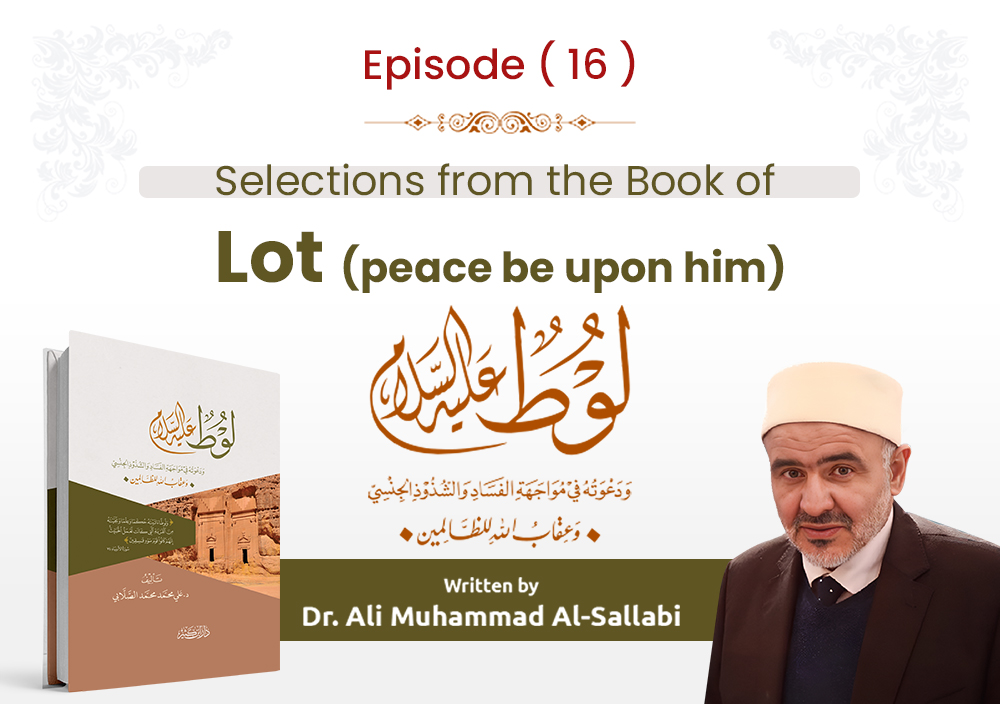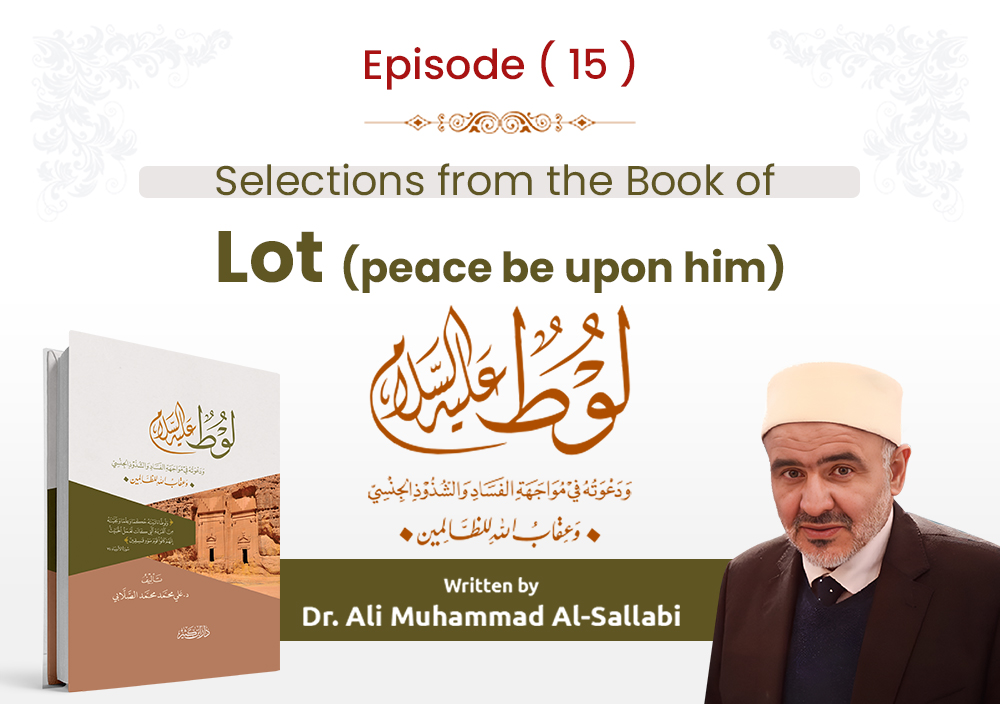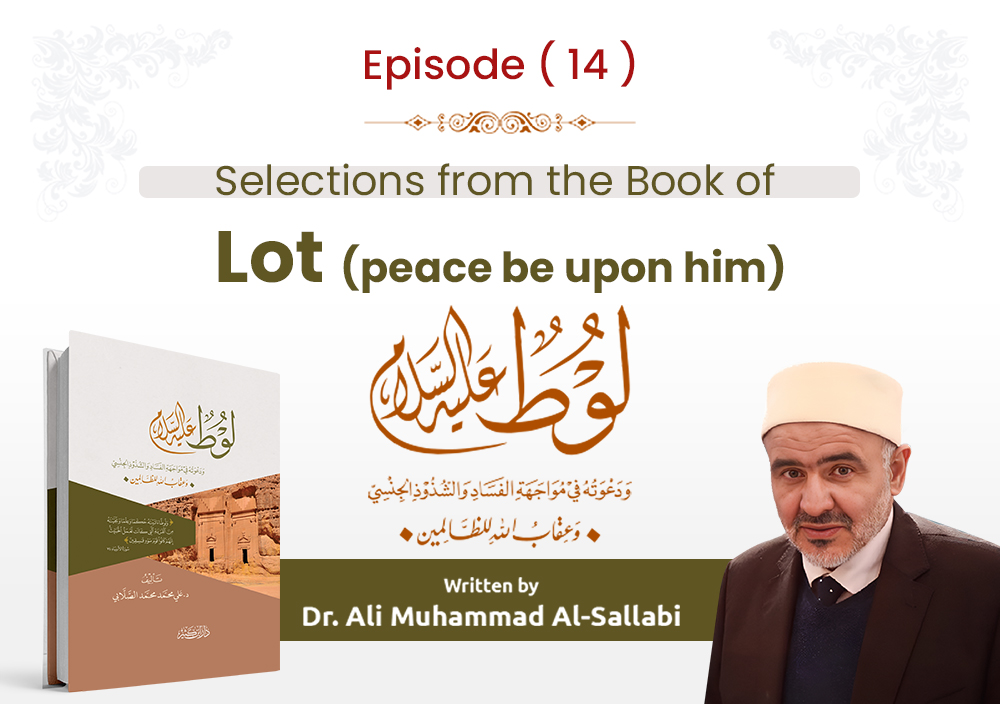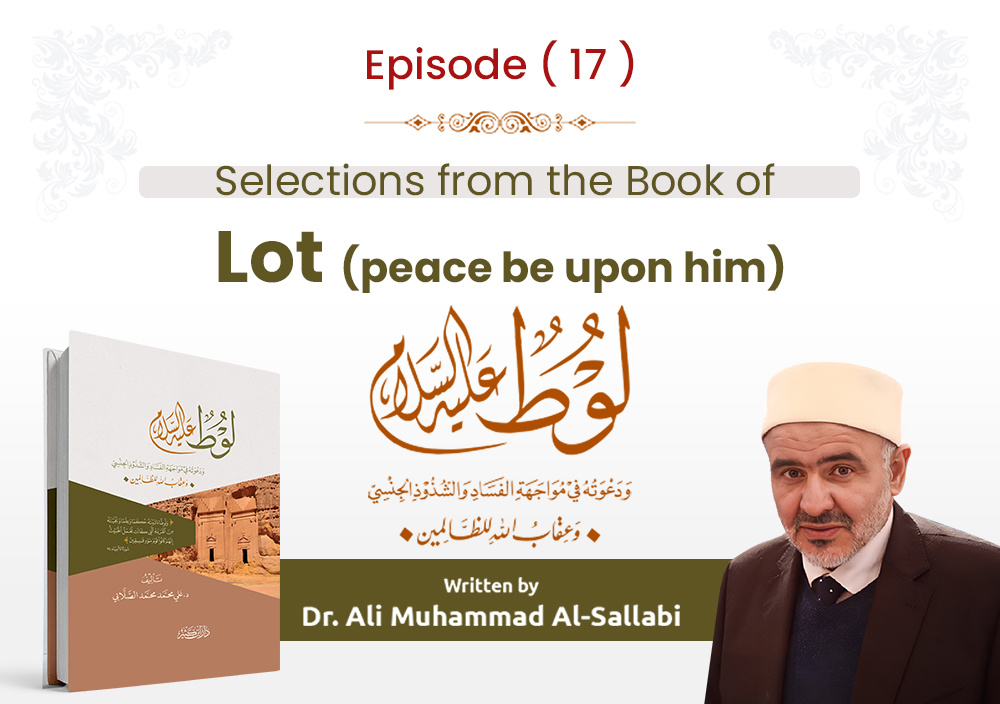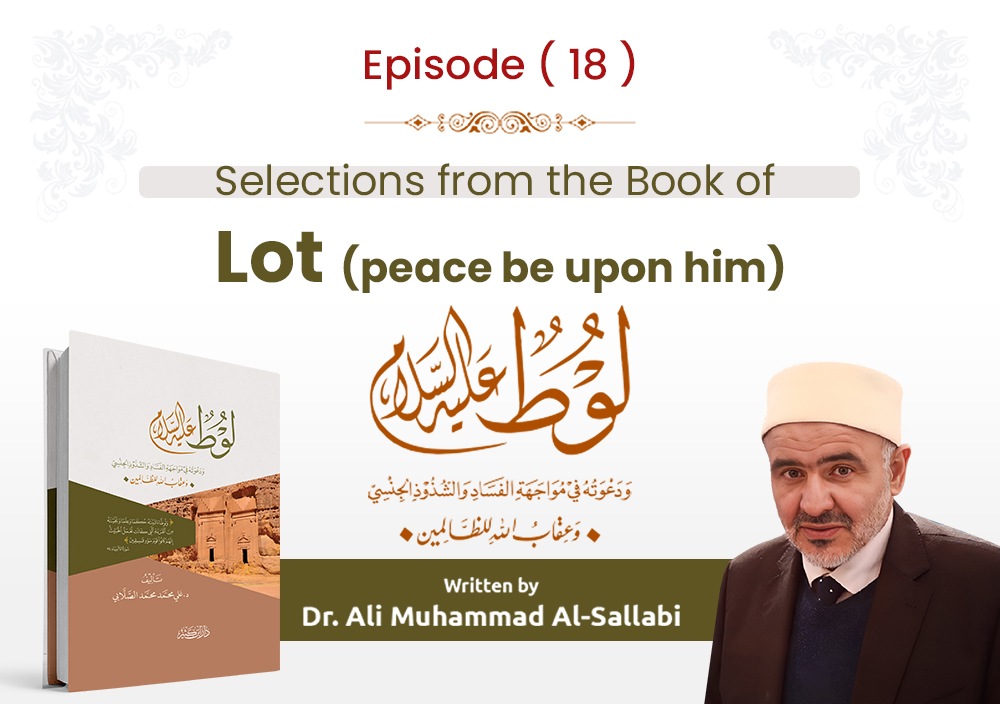The Messengers do not inherit anything after their death
Selections from the Book ‘’Lot (peace be upon him) and his Mission in Confronting Corruption and Sexual Deviance’’ …
Written by Dr. Ali Muhammad al-Sallabi...
Episode (16)
The Messenger of Allah, may Allah bless him and grant him peace, said: ''We, the company of prophets, are not to be inherited from; Whatever I left after contribution to my wives and provisions for my governor is sadaqah (alms)''.
The narrations found in the collections of Imams al-Bukhari and Muslim do not contain the phrase: "Indeed, we, the company of prophets". Instead, they are phrased as: "We are not to be inherited from; what we leave behind is charity". Imam Ibn Hajar (may Allah have mercy on him), after explaining this hadith, stated: "As for what has become well-known in the books of the scholars of fundamentals and others with the wording: 'We, the company of prophets, are not to be inherited from'. This has been denied by a number of the scholars, and it is so concerning the specific wording 'We'. However, it was narrated by al-Nasa'i through the route of Ibn Uyaynah from Abu al-Zinad with the wording: 'Indeed, we, the company of prophets, are not to be inherited from'. This hadith was narrated by Muhammad ibn Mansur from Ibn Uyaynah, and it is likewise found in the Musnad of al-Humaydi from Ibn Uyaynah, who is one of the most reliable transmitters from Ibn Uyaynah. Al-Haytham ibn Kulaib included it in his Musnad from the hadith of Abu Bakr al-Siddiq with the mentioned wording, and al-Tabarani narrated it in al-Awsat with a similar wording. Al-Daraqutni narrated it in al-‘Ilal from the narration of Umm Hani from Fatimah from Abu Bakr al-Siddiq (may Allah be pleased with them both) with the wording: "Indeed, the prophets are not to be inherited from".
Ibn Battal and others have said that the reasoning behind this—Allah knows best—is that Allah sent the prophets as messengers to deliver His message, and commanded them not to take any payment for that, as Allah says: {Say, [O Muhammad], "I do not ask you for it [i.e., this message] any payment.} [Ash-Shuraa: 23]. Similarly, Noah, Hud, and others said something to this effect. The wisdom behind their not leaving inheritances was to avoid the misconception that they accumulated wealth for their heirs. As for Allah's statement: {And Solomon inherited David.} [An-Naml: 16], scholars interpret this as referring to knowledge and wisdom. Likewise, the statement of Zakariya: {so give me from Yourself an heir. (5) Who will inherit me...} [Maryam: 5-6] is understood in this context. Ibn Abd al-Barr reported that there are two opinions among scholars on this matter, with the majority holding that prophets do not leave behind inheritances.
As-Sa'ati (may Allah have mercy on him) said in "Al-Fath ar-Rabbani": The scholars have stated that the wisdom behind the fact that the prophets (peace be upon them) do not leave behind inheritances is that if they did, it could be assumed that they had a desire for worldly gains for their heirs, which could lead people to ruin due to this assumption. Alternatively, it could be to prevent their heirs from wishing for their deaths, which would also be ruinous. Another reason is that the Prophet (peace and blessings be upon him) is like a father to his community, so his inheritance is for everyone, which is the meaning of general charity.
- Ali Muhammad al-Sallabi, Lot (peace be upon him) and his Mission in Confronting Corruption and Sexual Deviance, pp. 74-76.
- Musnad Ahmad, Imam Ahmad ibn Hanbal, edited by: Shuaib Arnaout, Al-Resala Foundation, Beirut, 2nd edition, 2008 AD, No. 9973.
- Sahih Al-Bukhari, No. 1757.
- Fath al-Bari Sharh Sahih al-Bukhari, Ibn Hajar al-Asqalani, 12/8.
- Al-Fath al-Rabbani and al-Fayd al-Rahmani, Abdul Qadir al-Jilani, edited by: Dr. Ahmed Abdul Rahim al-Sayeh and advisor Tawfiq Ali Wahba, Library of Religious Culture, Cairo, Egypt, 1st edition, 2014 AD, 15/192.
For further information and review of the sources for the article, see:
The Book of ‘’Lot (peace be upon him) and his Mission in Confronting Corruption and Sexual Deviance’’ on the official website of Sheikh Dr. Ali Muhammad al-Sallabi:


